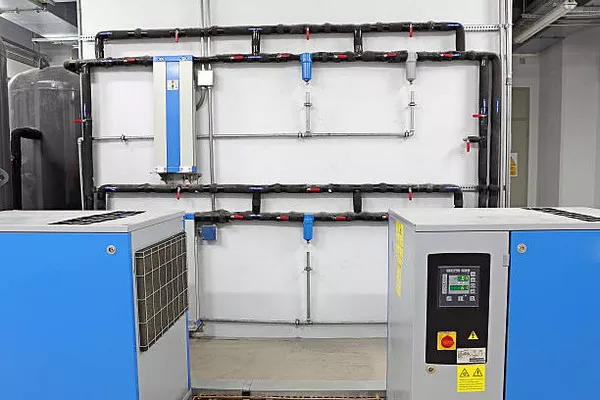The global hydronic heat pump compressors market was valued at approximately USD 8.7 billion in 2023 and is projected to expand at a compound annual growth rate (CAGR) of 16% from 2024 to 2032. This growth is primarily driven by the increasing demand for energy-efficient heating and cooling systems, spurred by a rise in sustainable building practices, urban development, and population growth.
The market outlook is further strengthened by stringent regulations aimed at reducing emissions and supportive initiatives promoting heat pump deployment. For instance, in 2024, individuals who install efficient heat pumps will be eligible for a federal tax credit that covers 30% of the costs associated with the heat pump and its installation, capped at USD 2,000 annually.
The demand for hydronic heat pump compressors is expected to surge, particularly for hot water and space heating in building infrastructure, as well as the growing adoption of energy-efficient technologies in residential and commercial sectors. Manufacturers are increasingly investing in the development and expansion of production facilities to create advanced technological systems. Notably, some companies are revamping existing facilities to focus on twin-rotary variable capacity heat pump compressors.
The space heating segment of the market is projected to surpass USD 14.8 billion by 2032, driven by the rising adoption of reliable and efficient heating solutions in both residential and commercial settings. This trend is complemented by stringent building efficiency codes and standards. Increasing consumer awareness regarding energy savings, advancements in compressor technology, and government incentives aimed at reducing carbon footprints will further facilitate the deployment of these products.
The rotary heat pump compressors market is anticipated to grow at a CAGR of over 14.5% through 2032, fueled by the rising demand for advanced heat pump units and the transition towards energy-efficient heating and cooling systems. Moreover, stringent energy efficiency mandates and favorable financial incentives will enhance the business landscape. Environmental concerns and initiatives aimed at reducing carbon emissions, coupled with efforts to lower energy consumption and operational costs, are driving product deployment.
In Europe, the hydronic heat pump compressors market is projected to reach USD 18.9 billion by 2032, supported by varying climatic conditions, increasing demand for ambient space heating, and hot water solutions. Stringent standards to reduce carbon emissions, along with financial grants, subsidies, and tax benefits, will also promote heat pump adoption and boost demand for advanced technology compressors.
Ongoing research and development initiatives focusing on advanced compressor technologies are expected to enhance the operational efficiency and reliability of heat pump systems. For example, Dorin’s innovative compressor design, set to debut in July 2024, is designed to expand the application scope of CO2 (R744)-based air-to-water heat pumps, effectively addressing challenges associated with low ambient temperature operations. This design improves thermal insulation, lowering discharge temperatures, and enabling heat pumps to function more efficiently in colder climates. Additionally, initiatives aimed at reducing energy consumption and retrofitting building infrastructures for improved efficiency will further influence the dynamics of the heat pump compressor industry in Europe.
Key players in the hydronic heat pump compressors market, including Carrier, Panasonic Corporation, Daikin, Samsung, LG Electronics, and Danfoss, hold significant market share and face intense competition, regulatory challenges, and the need for technological innovation. These manufacturers are focused on developing cost-effective, energy-efficient solutions and are actively pursuing strategic mergers, partnerships, and acquisitions to enhance their competitive edge.
You Might Be Interested In

